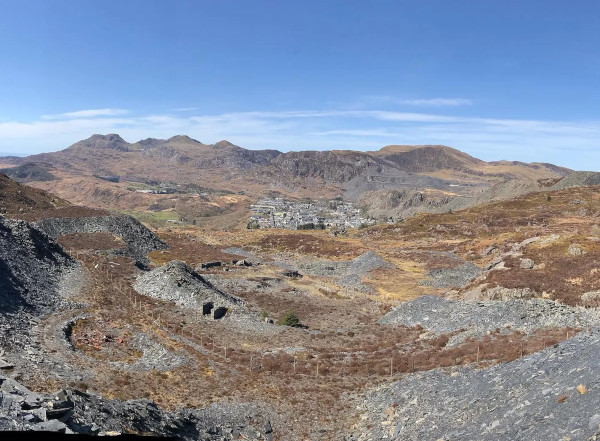We’d like to see the commons economy grow to allow people (especially young people) to stay in their communities, rather than having to move to big cities to work in the corporate sector and pay extortionate rents. Here, Paul Jennings (who we’re liaising with about the commons in Llandeilo) talks about the concept of ‘Restanza’ – staying where we are and developing local culture, rather than being sucked into the corporate vortex. Over to Paul:
Central to the idea of the Restanza, as proposed by the Italian anthropologist, Vito Teti, is that places sometimes characterised as “left behind,” inferior to the metropolitan hubs of the modern world, can be brought back to vitality, that being left behind can be reimagined as the positive act of purposively staying behind.
Teti argues that staying in a place that has been marginalised, called the periphery, having been turned into the periphery by extraction and exploitation, is “an art, an invention, a practice.” Restanza is both staying, and resilience, in the face of an epoch determined to tear communities and families apart.
The Foundational Economy report A Way Ahead — Empowering Restanza in a Slate Valley, about the Bro Ffestiniog in Gwynedd, talks about staying as an adventure every bit as challenging as leaving, a choice to make the exciting things you imagine are elsewhere, happen in the place where you are, for all its apparent problems.
Deciding to be present brings life back, and the return of life makes places more liveable.
For two hundred years and more, staying in places not favoured by distant elites, or by the twists and turns of capitalism, has been difficult, an apparent recipe for poverty and cultural backwardness. Often, of course, escape has brought loneliness and disappointment, a longing for what has been left behind, perhaps lost forever.
Communities can though, recentre the world, overcoming the notion that everything exciting, opportunities for betterment, can only be found elsewhere.
In recent times there has been a move towards community ownership of shops, pubs, and, through the exciting community energy sector, clean renewables, the profits from which are reinvested in the communities that own them.
What we can do for power, or for shops, we can do for the cultural commons too, laying to rest the idea that nothing ever happens in regions that have lost out economically, or which have suffered the draining away of cultural resources to distant cities, the growth of an homogenous television or internet culture.
There are already plenty of ways to practice Restanza of course. When I lived in the Ariege, there was a local hall that had a second job as the local cinema; there were lots of cultural events in small venues, and little association-run bars where live music was a common attraction. Where I live now, in the west of Cymru, despite decades of economic decline and an ageing population, there are still community choirs, well-run sports clubs, community owned pubs, shops, and wind turbines. I can and do choose to go to local soccer games instead of to far away stadiums. Community resilience though, feels like an uphill struggle.
Why not then take on the ideas of the Commons movement, and apply them to the cultural sector? Using community share issues and ethically raised finance, together we could create a vibrant, democratic, cultural commons including art galleries, cinemas and theatres, music venues, and even recording labels, and publishing houses.
Imagine the money we direct elsewhere, to BBC licence fees, or to trips to distant sporting events or gigs, poured into local talent, local sports clubs and facilities. For me, this is the essential complement to such things as community power generation, or community gardens.
We could practice the intentional creation of commonly held and democratically run assets which would bring life and thus increase liveability. The more we supported the cultural commons the more wealth, in the broadest sense, they would generate, creating a reinvestment multiplier down through the generations.
A community, by definition, has a shared culture. The cultural commons, the excitement and the opportunities it would create, would draw people together and build Restanza. The only thing standing between us and this work to bring life back to the places where we live, the places so often dismissed by others, and even by ourselves, is the decision to turn back from “the centre”, and to rediscover our own centre, where we are.
Restanza in Blaenau: New Foundational Politics
A Way Ahead: Empowering Restanza in a Slate Valley
Paul is a permaculture designer and teacher, and always open to work. Contact him at houseinthewoods45@gmail.com


Leave a Reply